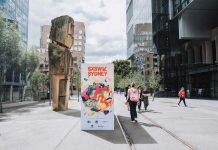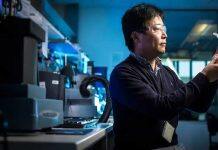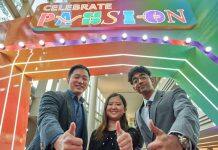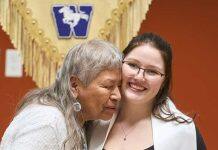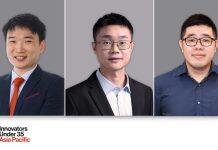When Kathrina Goodwin applied to Western, she was torn between pursuing health sciences and international relations.


She knew her final objective: global health. But how best to get there? Goodwin, now finishing her final semester, chose international relations for the doors it would open.
The path is already proving fruitful, with Goodwin landing a summer internship in Seattle, Washington to work with a research team improve care for children with chronic health conditions.
“My internship taught me I can be more useful in my local community,” she said of the Summer Scholars Program at the Seattle Children’s Research Institute, where she conducted research for the Center for Child Health, Behaviour and Development.
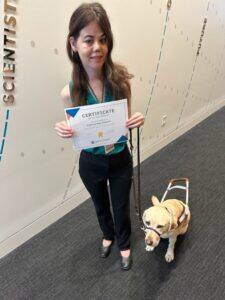

Goodwin interviewed pediatric patients and their families over the summer to collect data about their quality of life in the face of complex medical needs, including chronic conditions. Those efforts result in higher-quality information about how children’s medical issues are impacting daily activities.
“There isn’t a comprehensive or standardized quality of life health survey,” she said. “If you don’t have a proper way of measuring something, you don’t know how a patient is doing.”
Part of that assessment included soliciting feedback from patients and their families, especially those from marginalized communities, to determine the survey questions that would best drill down to critical information and produce illuminating answers.
Her work with the Patient Reported Outcomes Team is ultimately about improving the quality of health care for children with multiple medical needs, Goodwin said.
“Using this data, health-care professionals will be able to understand how their patients are actually doing, based on how they complete baseline activities and routines, as opposed to (simply asking at an appointment), ‘hey, how are you doing today?’”
The experience was enlightening and fulfilling for Goodwin.
“I learned a lot I don’t think I would be able to learn in a classroom environment. I had really great mentorship as part of my team. I was nervous, coming from an honours international relations perspective doing health research, but I found I was really good at what I do,” she said.
“It was really rewarding.”
Goodwin, a dual American-Canadian citizen, already had a connection to Seattle Children’s Hospital. She received treatment at the hospital’s Craniofacial Center for much of her childhood.
“I tried to keep my medical history and my work separate. Ultimately, I was there to do a job and learn,” Goodwin said of her return to Seattle Children’s Hospital. “But it was fascinating to learn and be on the other side of the table.”
The summer work experience also taught Goodwin more about the intricacies of the American health-care system, including areas for improvement.
She hopes to one day increase the equity and accessibility of healthcare in the country and across the world.
Goodwin has tailored her entire social science degree at Western to align with those career ambitions.
“When I did my school papers and all my research projects, I’ve always tried to focus on health-related topics. So even though I’m coming from a social science degree, I have some science (experience),” she said.
“You can make your degree anything you want.”


